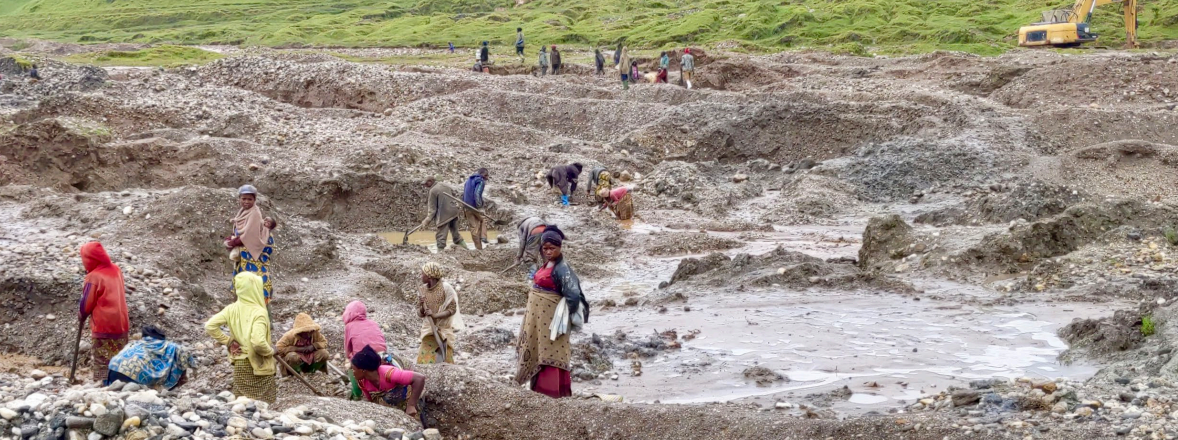Summary
Mining of gold, cassiterite, coltan, wolframite and tourmaline are important sources of employment and livelihood in the South Kivu province in eastern Democratic Republic of Congo (DRC). Many artisanal mine workers, both men and women, are involved in this work to meet their daily needs, such as obtaining food and sending their children to school. Several studies have documented the socio-economic situations of artisanal and small-scale mining (ASM) stakeholders and the working conditions in this sector. However, the dynamics of gender and social inclusion have so far only been analyzed in a limited number of research projects. In addition, while various policy reforms have been implemented over the last decade in ASM in eastern DRC, research has hardly addressed the impacts of these reforms on the socio-economic situation of women and other marginalized groups.
This study aims to fill this gap by analyzing gender and social inclusion issues and by assessing the potential impacts of responsible sourcing initiatives on the socio-economic situations of women involved in mining. This research will increase awareness among policymakers and other development stakeholders of gender equality and social inclusion (GESI) issues by providing them with the necessary empirical knowledge that can enable them to adapt ASM governance reforms to the situation and to the needs of the different categories of stakeholders. The study adopted a qualitative approach that involved semi-structured interviews and focus group discussions with ASM stakeholders (men and women) in the Numbi, Nzibira and Nyabibwe mineral supply chains of the Walungu and Kalehe territories in South Kivu province. In total, 105 individual interviews and 21 focus groups were organized at the three study sites: notably 36 individual interviews and 7 focus groups in Nzibira, 39 individual interviews and 6 focus groups in Numbi, and 30 individual interviews and 8 focus groups in Nyabibwe (See the breakdown of interviews and focus group participants by gender, in the methodology: Table 1 and Table 2 in section 3).
The results of the surveys show a strong involvement of women in ASM across the three sites studied (and especially at the Numbi area). Many are involved in the transportation and processing of minerals (manual crushing and washing of the minerals). A small number of women are also involved in the extraction of the minerals, either by overseeing the pits (as “PDG” (Président Directeur Général), which is the manager of the mine) or by collecting and processing mining waste. Others are involved in the sale of the minerals in collaboration with men. Despite this involvement of women in ASM, there are still barriers that reinforce gender inequalities in this sector, including gendered biases against women, a lack of sufficient resources for women, a lack of institutions for the advancement of women, and discrimination against women in ASM governance institutions. Finally, the report discusses the impacts (both positive and negative) of policy reforms on the socio-economic situation of women in the artisanal mining sector. For instance, responsible sourcing initiatives have been praised for decreasing the extortion of ASM stakeholders and reducing the involvement of armed groups in mining. On the other hand, formalization and responsible sourcing (and in particular traceability) have had a negative impact on women’s involvement in mining and their income, as it has actually pushed them further into informality, which reinforces their marginalization and fragile position.


